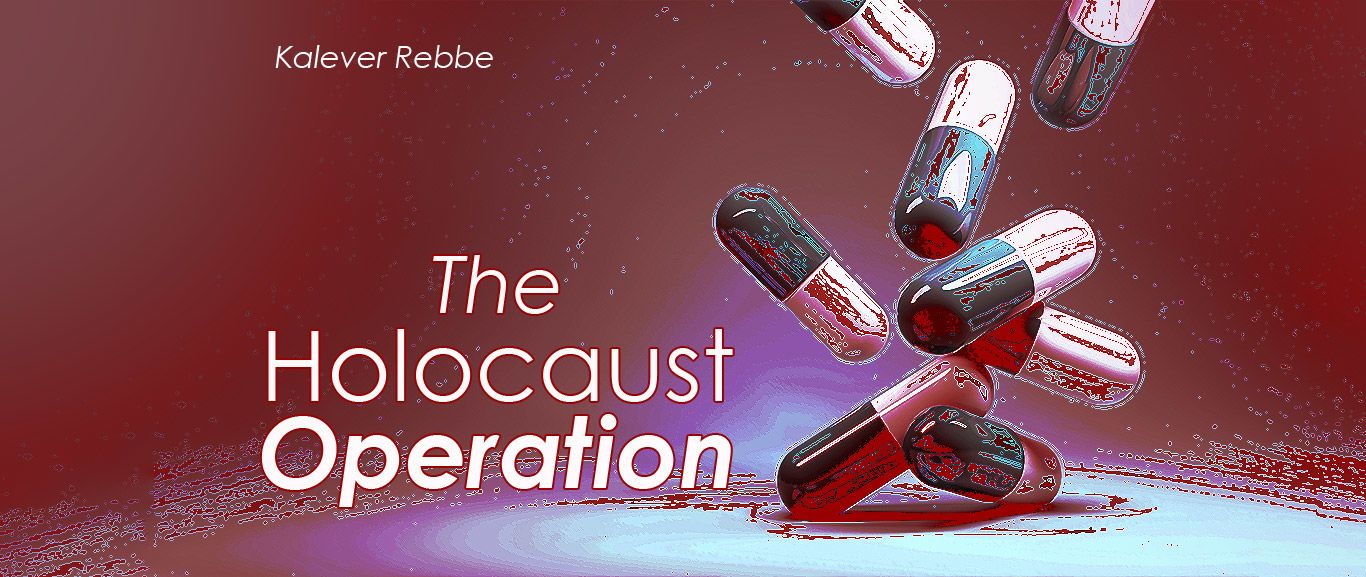
The Holocaust Operation
Holocaust Remembrance Day is 18-April. It's so difficult to see suffering! How can we look "through it" to see the greater good that will be born from it?

Elokim spoke to Moshe, and He said to him, “I am the Havayah (the Lord).” (Shemot 6:5)
Pain with Purpose
Over the years, while traveling throughout the world, meeting with Jews from diverse backgrounds, many secular Jews would commonly ask me: “Where was Hashem, the protector of Israel, during the Holocaust?”
I would answer this question with an analogy: A father had one child, a son, that was born later in his life. He cherished his only child and loved him dearly. When the boy was young, tragedy struck, and he became severely ill with a life-threatening disease. Seeking a cure, the father brought his son to a specialist who recommended a surgery that, while excruciating and painful, would cure the boy.
Obviously, the loving father agreed. However, his son was too young to truly appreciate the gravity of the situation. And, as the doctor proceeded with the surgery, the son cried out in agonizing anguish to his father to stop the surgery. When his father remained stoic and allowed the doctor to continue, the son thought his father had abandoned him.
However, when the boy grew up, he understood that that surgery saved his life and the pain he had to experience was for his ultimate good.
The lesson is clear. Hashem, the Creator of everything in the world, selected the Jewish people as His only child. And Hashem loves and cherishes every Jew, and He only showers goodness and kindness on the Jewish people. However, like the father in the analogy, there are times when Hashem knows that it is necessary for a Jew to endure a challenge or to suffer for a finite amount of time on this world, to merit ultimate and eternal goodness for their soul.
However, like the child, that person doesn’t always understand how that pain is saving his life and paving the way to an outcome that is only and fully good. They falsely feel like Hashem has abandoned them. And, they start to believe that this pain is without purpose, that their suffering is not Hashgacha Pratit, Divine Providence.
Millions of precious Jews were murdered during the Holocaust. It is understandable that someone might begin to forget that suffering in this world is for an ultimate good; that the pain has a purpose. However, when a person comes to the Upper Worlds, he will be able to clearly see that everything that had happened in this world, in his life, was only for the ultimate good. The pain was the path to the cure.
Rescued Through an Illness
In fact, we clearly saw Hashgacha Pratit throughout the Holocaust. There are countless miraculous stories of yidden being saved within those darkest moments of human suffering. And many of the survivors who suffered in the days of the Holocaust, managed to see how their suffering was an Hashgacha Pratit to save their lives. Through the temporary suffering they were able to live long and sweet lives, and merited to see their families and communities rebuilt and thrive.
Let me share one example of my own life. I was born before the war in Mihalyfalva, Hungary. When I was a child, my holy father ztz”l had developed an illness that required specific medical attention and care that was simply not available in our town. Therefore, he would travel to the Romanian town of Arad where there were doctors who could treat him. He traveled so often, that eventually our family had made the difficult decision to relocate to Arad. During the Holocaust, when the Germans occupied Hungary, the entire town of Mihalyfalva, every single Jew, was sent to Auschwitz. The illness led our family to moving, which, in the end, saved our lives.
The Stolen Bread
We can see a similar example in the following story: A Jew was in one of the concentration camps towards the end of the war. Food was even more scarce than usual, and he hadn’t eaten for some time. One day, the Nazis were handing out small parcels of bread, barely larger than crumbs. But, in that state of hunger, the Jew eagerly accepted his portion. But then a non-Jewish prisoner stole his small piece of bread.
He was devastated and angry. He furiously screamed, “Hashem, why would You do something so cruel to me!?” His anger was so overpowering, and his body was so frail from starvation, that he fainted from sheer exhaustion.
When he regained consciousness, there was an eerie silence throughout the camp. There was not a sound. Just stillness. Confused, he went looking around to see where everyone had gone. He quickly learned that the allied forces were rapidly approaching and would be liberating the camp. Before the Nazis fled, they poisoned all the prisoners with the bread they had handed out. This Jew was the sole remaining survivor.
When the bread was stolen, he was angry and thought that Hashem was being cruel. He only saw the momentary suffering. However, in retrospect, he was able to realize that his bread being stolen saved his life. The source of that pain itself was salvation.
Only Goodness
Reb Shmuel Eliyahu from Madzitz ztz”l once shared with me the following incredibly inspiring and powerful Devar Torah that can uplift someone facing the most difficult challenges:
Suffering and tragedies come from the heavens in two different ways. For the non-Jews, they are punished for their behavior. However, when suffering and hardships are sent into a Jew’s life, they come from a place of love. The Jew’s suffering is solely for the goodness that will inevitably come after. It is truly an act of Hashem’s love. We can see this very concept from the pasuk that says (Shemot 15:26), all the sicknesses that I have visited upon Egypt I will not visit upon you, for I, the Lord (Havayah), heal you. This pasuk can be understood as follows:
The plagues were all the sicknesses that Hashem vengefully inflicted upon the Egyptians. This type of pain, I will not visit upon you. Rather, Hashem always interacts mercifully with the Jews for their “healing” and for their goodness. [Each name of Hashem reflects a different character trait or attribute. The name used at the end of this pasuk, Havayah, is the Name that expresses Hashem’s Mercy. for I, the Lord (Havayah), heal you: meaning that Hashem always interacts with the Jews with Havayah and mercy for the sake of healing them.] Therefore, when we see a Jew suffering, you need to know that that suffering itself is the catalyst for the healing; the pain is the cure because it purifies the soul from sins etc.
Why “Woe”?!
The Yerushalmi taught (Shekalim 23b) that ‘Nachum Ish Gam Zoo’ became very ill, and his entire body was covered with painful boils. R’ Akiva came to visit him and said, “Woe to me that I have to see you like this. Nachum rebuked him saying, “Why are you kicking my suffering?” Why was Nachum upset?
R’ Yitzchak Isaac of Kamarno, zt”l, explained that when Nachum heard R’ Akiva say “Woe” he interpreted that as revealing that R’ Akiva only saw the suffering and pain for its face value. He didn’t see that through this illness R’ Nachum could only obtain greater goodness and blessings in his life. Nachum felt that all suffering and pain will eventually lead to a greater good, that Hashem only desires goodness for the Jews and, therefore, the suffering must be accepted with love.
The early philosophers mistakenly espoused that there were two dominions in this world, God Forbid. One that delivered good things into the world, and one that inflicted pain and suffering. They thought that it was impossible for mercy itself to do something that seemed terrible or evil.
Moshe Rabbeinu’s Message
When Moshe saw the circumstances in Egypt get worse for the Jews, he asked Hashem, “Why have You harmed this people? (Shemot 5:2). Moshe questioned why there had to be further suffering.
And Hashem responded (Shemot 6:2) “Elokim spoke to Moshe.” The name of Elokim represents din and punishment. However, that din, that suffering itself is a chessed, a kindness, as the pasuk continues, “and He said to him, “I am Havayah.” Meaning, even though it seems like din, it feels like suffering, it is still I, the source of all kindness, that directs that pain for a greater good. The Elokim is Havayah which represents kindness.
In the margins of my father’s Chumash, at the beginning of the next Pasuk, next to the word וארא- I appeared (Shemot 6:3), he wrote: Ve’era is an acronym for the words in the pasuk (Yeshayahu 44:6), א’ני ר’אשון ו’אני א’חרון-I am first and I am last. Hashem alone oversees and intervenes in the world. At times, He first sends suffering and hardships, but in the end it will be good. That same essence of goodness is present in the “beginning” and the “last”.
***
The Kalever Rebbe is the seventh Rebbe of the Kaalov Chasidic dynasty, begun by his ancestor who was born to his previously childless parents after receiving a blessing from the Baal Shem Tov zy”a, and later learned under the Maggid of Mezeritch zt”l. The Rebbe has been involved in outreach for more than 30 years, and writes weekly emails on understanding current issues through the Torah. You can sign up at www.kaalov.org.


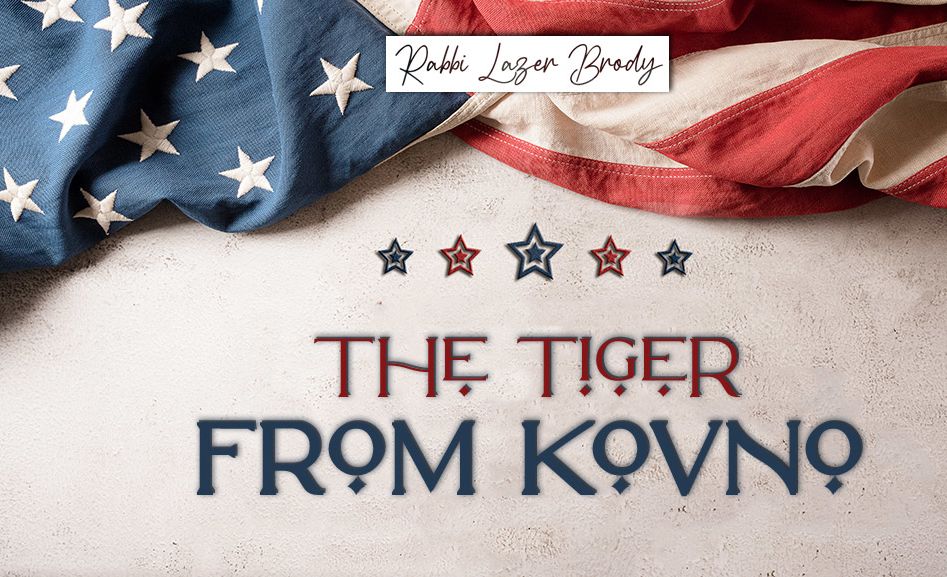
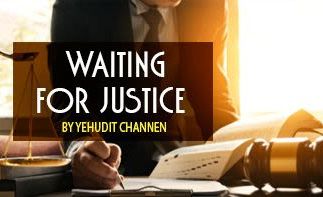
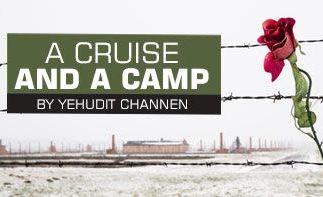
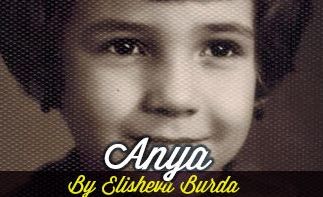


Tell us what you think!
Thank you for your comment!
It will be published after approval by the Editor.